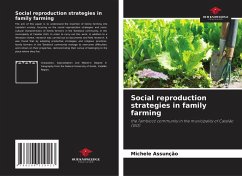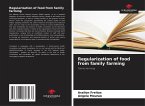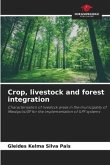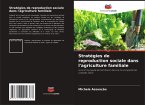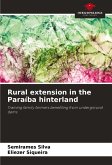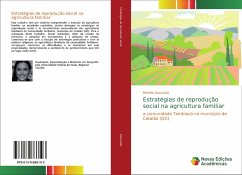The aim of this paper is to understand the insertion of family farming into capitalist society, focusing on the social reproduction strategies and socio-cultural characteristics of family farmers in the Tambiocó community, in the municipality of Catalão (GO). In order to carry out this work, in addition to a literature review, research was carried out on documents and field research. It was found that by adopting productive strategies and religious practices, family farmers in the Tambiocó community manage to overcome difficulties and remain on their properties, demonstrating their sense of belonging to the place where they live.
Bitte wählen Sie Ihr Anliegen aus.
Rechnungen
Retourenschein anfordern
Bestellstatus
Storno

